About Capstone
The Capstone Design Program is part of the undergraduate mechanical engineering curriculum, and follows a two-semester sequence. The program matches a team of motivated senior undergraduate mechanical engineering students with a multi-disciplinary project defined and funded by an industry sponsor.
The team of students, advised by a faculty or industry advisor, commits two semesters (approx. 9 hours/student/week) to scope, research, analyze, design, manufacture, and test a solution to meet the project’s objectives.
The teams have access to all undergraduate mechanical engineering labs and facilities, including the machine shops and dedicated capstone design maker space. Department staff assists with purchasing and ensures that all students obtain required safety training.
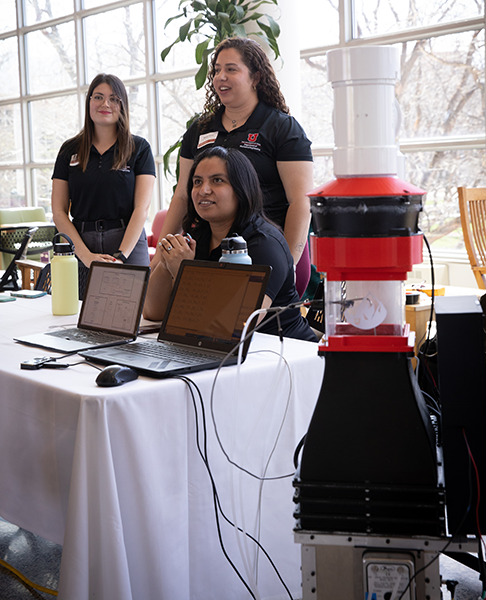
Ideal Project
The best projects have strong design elements that can help the students follow a rigorous design process starting with creation of design specifications, followed by creative concept generation and analysis, and culminating with a tested working prototype. Please propose your best idea, and we will work together to scope it correctly.
Timing
The two-semester Capstone Design Program is offered in three sequences:
- Fall & Spring semesters (August start)
- Spring and Fall semesters (January start)
- Summer and Fall semesters (May start)
At the end of each project, the Capstone Design teams participate in the Department of Mechanical Engineering Design Day event.
Companies are encouraged to submit project proposals by July 15th for a Fall semester start, November 15th for a Spring semester start, and April 15th for a Summer semester start.
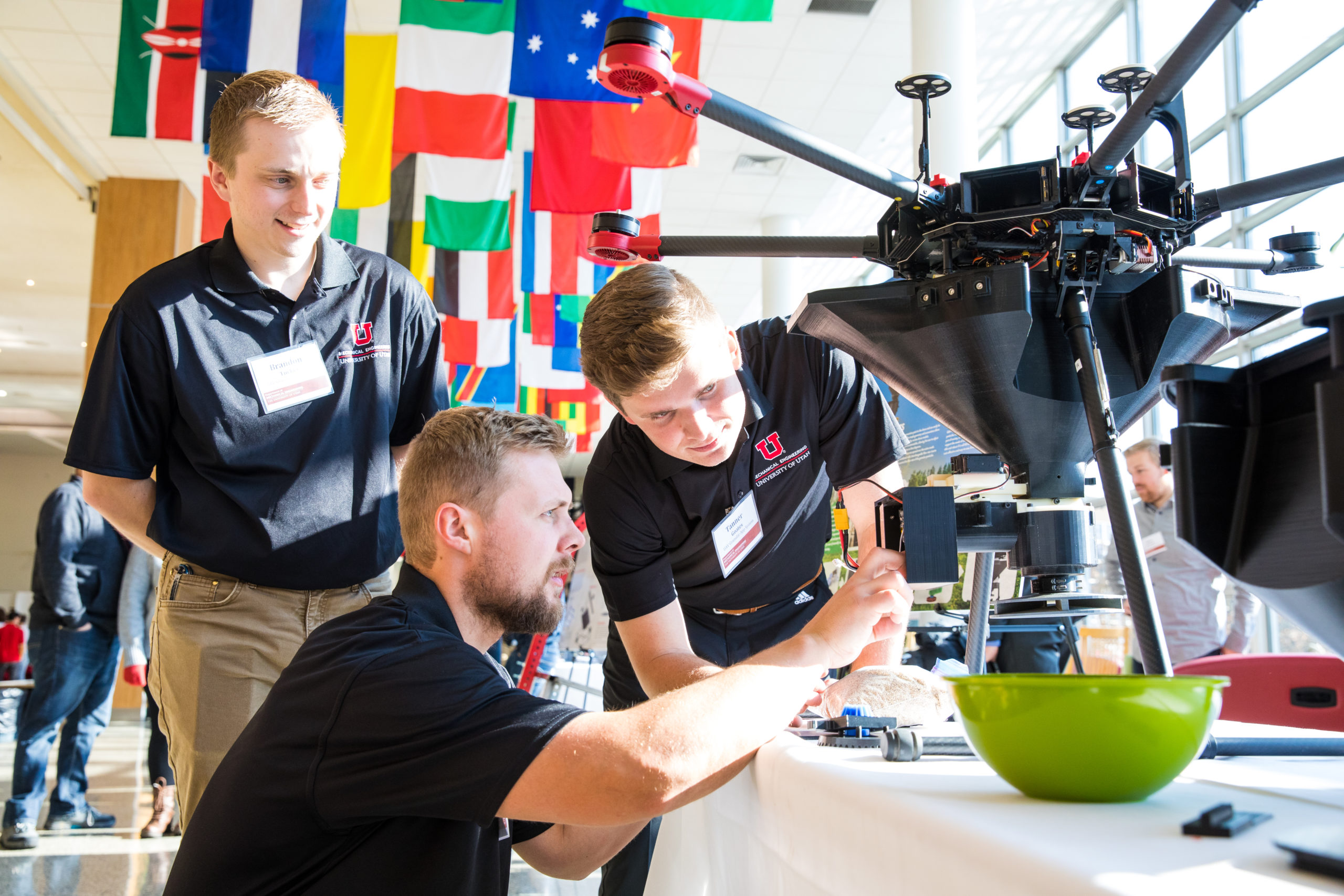
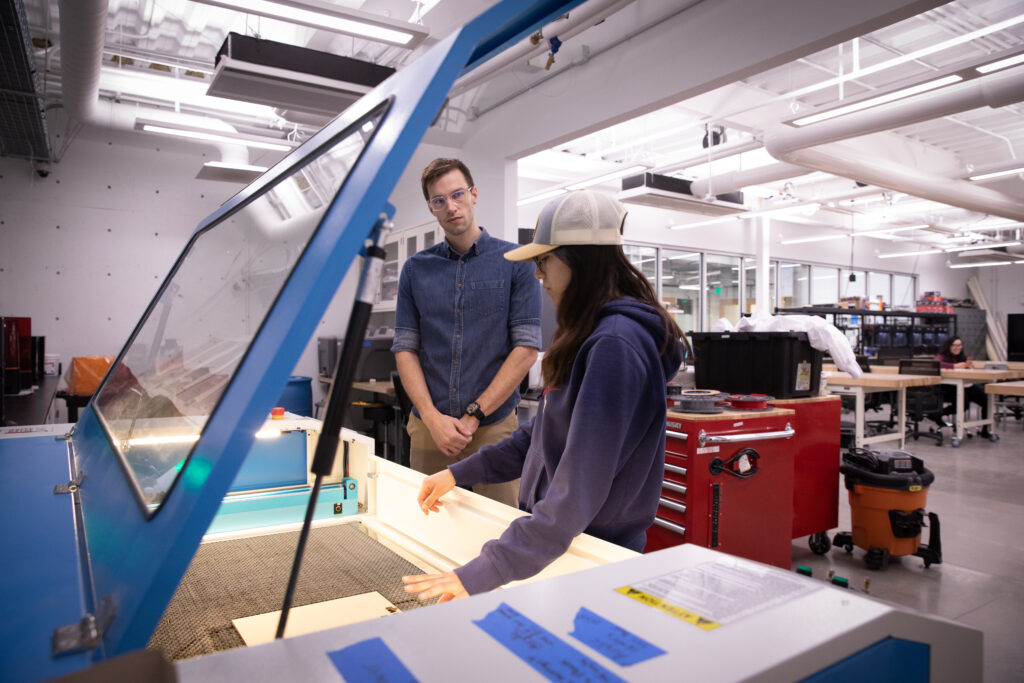
Sheldon X. Wang & April M. Xie Senior Design Lab
The lap offers 3,500 square feet of space full of tools, equipment, and workspaces for senior design students, along with a separate room for hot work. This includes basic tools for most prototyping including drills, saws, and hand tools. Additionally, the space offers multiple 3d printers, both FDM and resin. The space also has a large laser cutter, a CNC plasma cutter, and welding equipment.
HOW IT WORKS
Each team will have a dedicated faculty advisor. Capstone advisors are typically full-time engineering faculty or adjunct faculty specifically selected to advise a team and project based on their experience.
Teams generally consist of 4 to 6 students.
An engineer from the industry sponsor is invited to serve as an advisor or co-advisor to help make sure the team stays on track to meet the sponsor’s project objectives. We recommend that the industry sponsor meet with the team for 1 hour every two weeks for project success. The advisor will provide feedback relevant ot the project and receive status updates from the team.
Several design reviews occur during the two-semester project. The reviews provide critical feedback to the teams on all aspects of the project. Both the Sponsor Liaison and Faculty Advisor assist the team in understanding technical issues. Industry sponsors are encouraged to participate in the design reviews.
Students showcase their work in a tradeshow-like format during Design Day. They are also required to turn in a final report. Typically, they provide the sponsor with a working prototype and a documentation package (i.e. CAD drawings, code, use instructions, etc.).
PROJECT FLOW
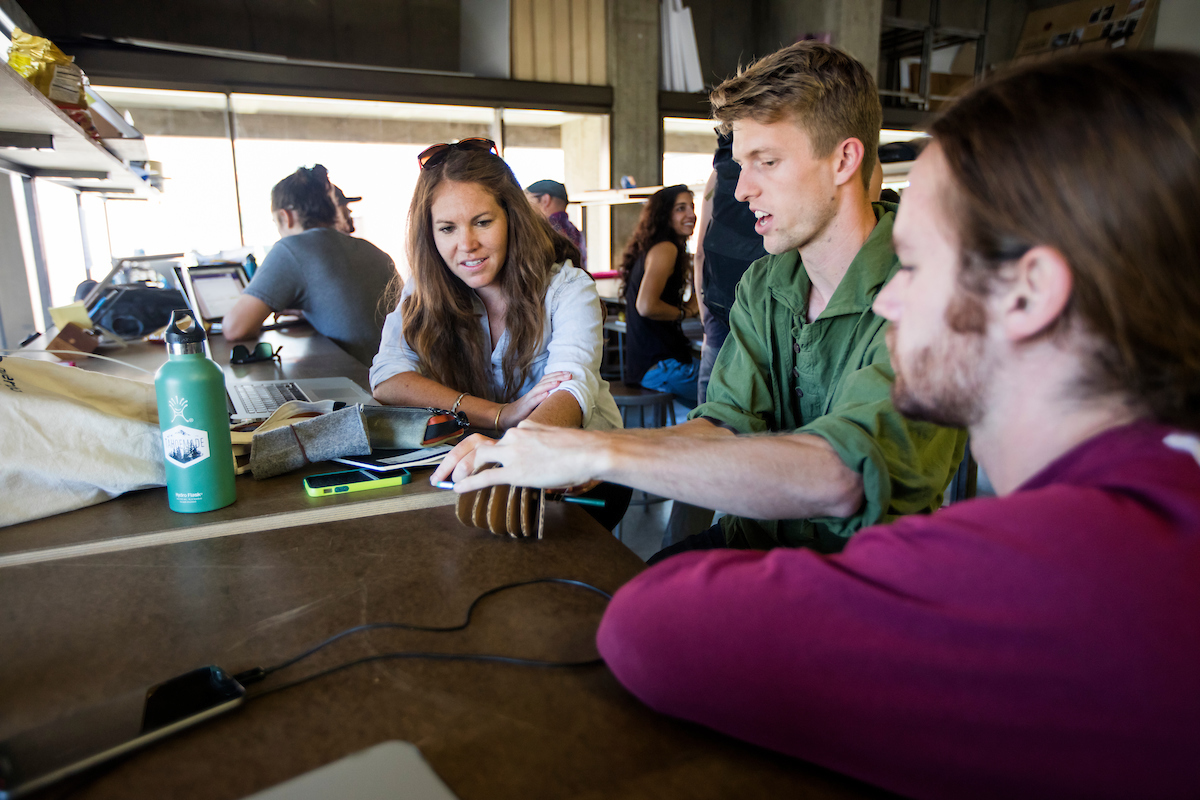
Step 1: Industry sponsor discusses project idea with Capstone coordinator.
Step 2: Industry sponsor submits project proposal.
Step 3: If project approved, faculty advisor and student team assigned.
Step 4: Team works on project design, tests, and prototypes.
Step 5: Project completed, showed at Design Day, and turned over to industry sponsor.
PROJECT DELIVERABLES
The project deliverables of a Capstone Design Project include a working prototype of the design and all supporting engineering documentation, including drawings, analyses, and test results. Deliverables may be tailored in accordance with industry sponsor requirements.
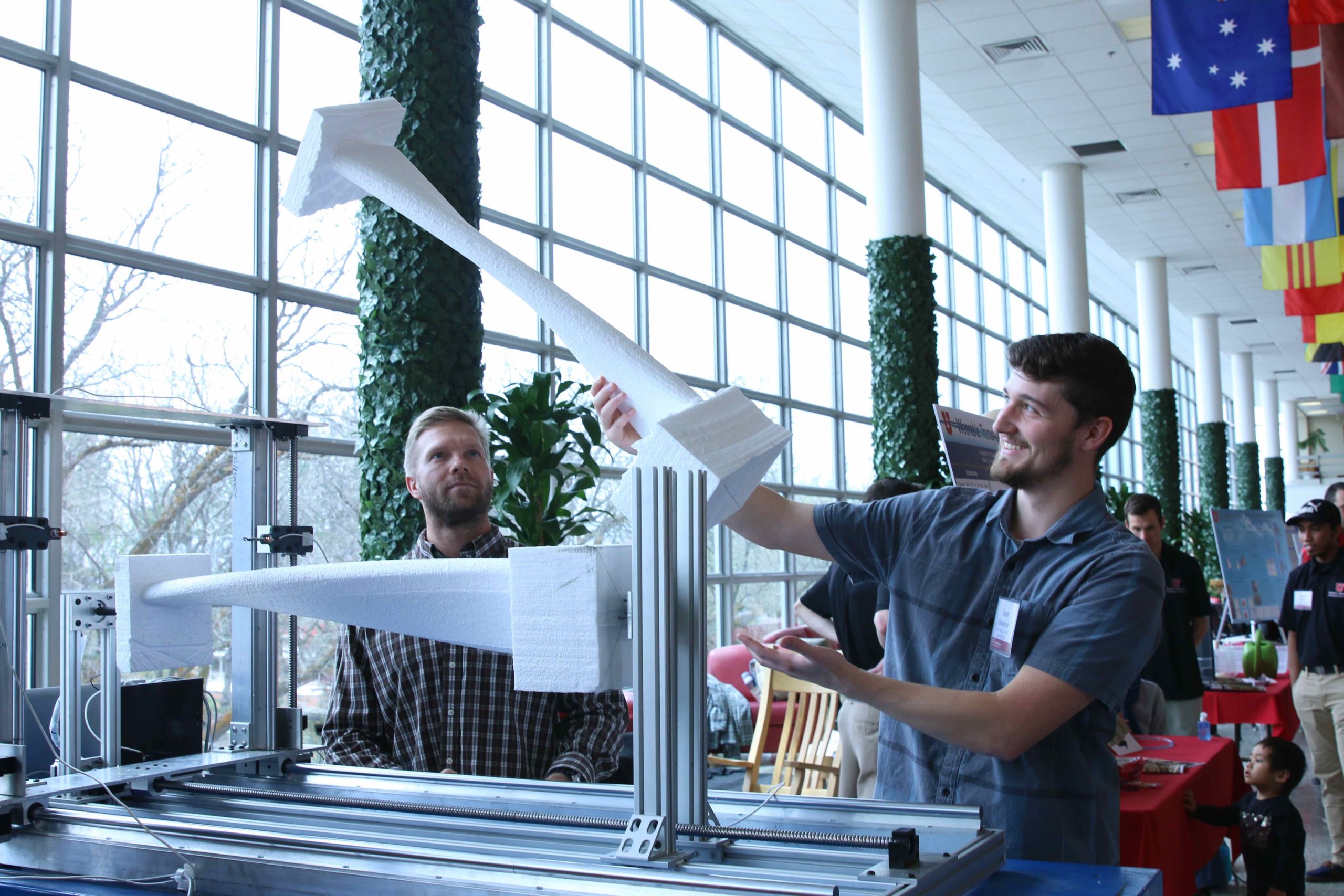
FAQ
The cost for an organization to sponsor a project in the Capstone Design Program is $19,000. Out of this amount, $5,000 is set aside for materials and other resources that the project will require.
The sponsoring organization will own any intellectual property generated by the project.
The confidentiality agreement is part of the research agreement with the university. If the sponsoring company would like a non-disclosure agreement in place before the research agreement is in place, we can arrange that.
Yes, each team has a faculty advisor and a liaison at the sponsoring company. We work closely with each team to find an appropriate faculty advisor for the project.
Teams are from 4 to 6 students.
Students do not choose their own teams, but we work hard to place each student on projects that they will enjoy and where their skillsets will most benefit their team.
A 3,500 square foot lab is dedicated to Capstone projects. The Capstone lab is fully stocked to support prototyping and testing of Capstone projects. In addition, the students have access to the mechatronics lab (robotics), the student machine shop, and a professional machinist. Available equipment includes: filament and resin 3d printers, a laser cutter, a plasma cutter, a water jet, mills, lathes, and welding equipment. Department labs have additional specialized equipment that the students have access to through their facility advisors.
Contact Steve Black at the Utah-MEP office: mecapstone@mech.utah.edu
We are happy to work with you to accommodate IP protections. Upon request, your project can be hosted in a separate room with controlled access on Design Day.